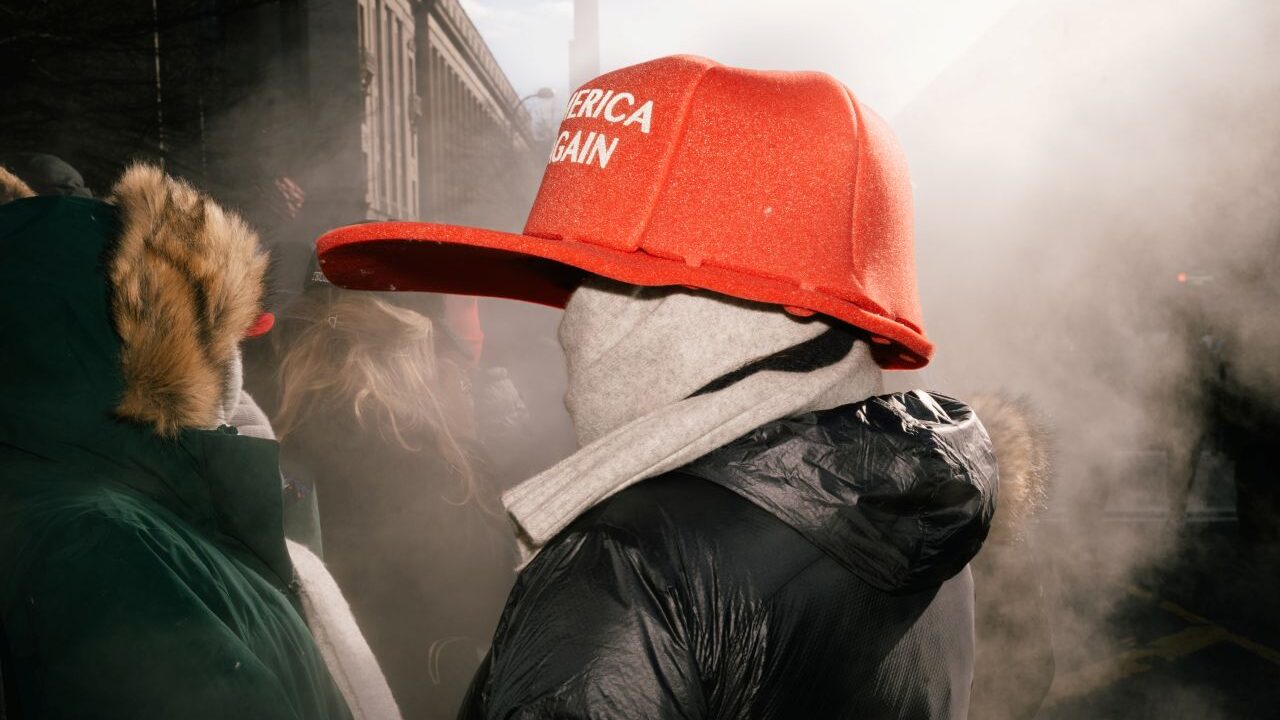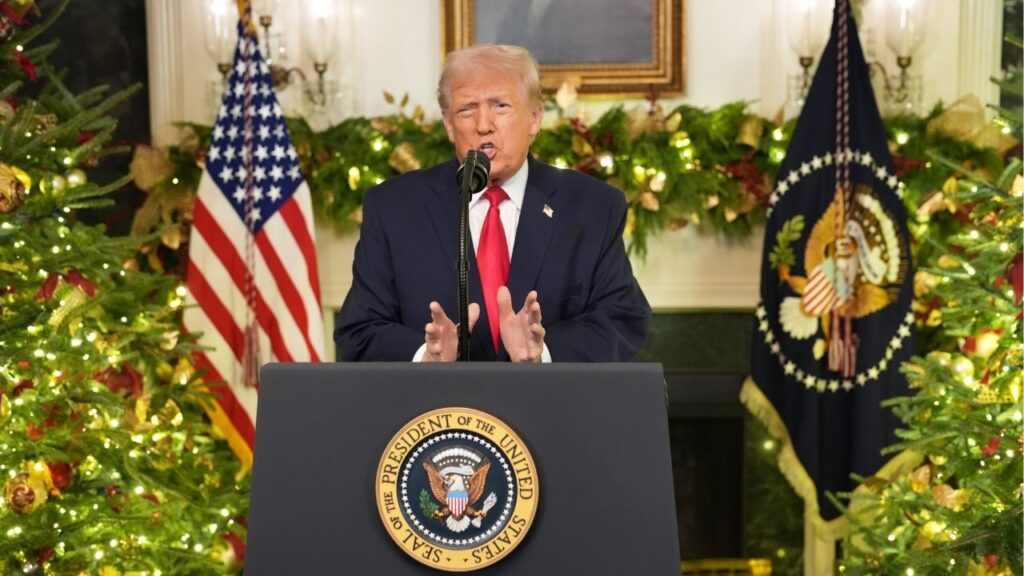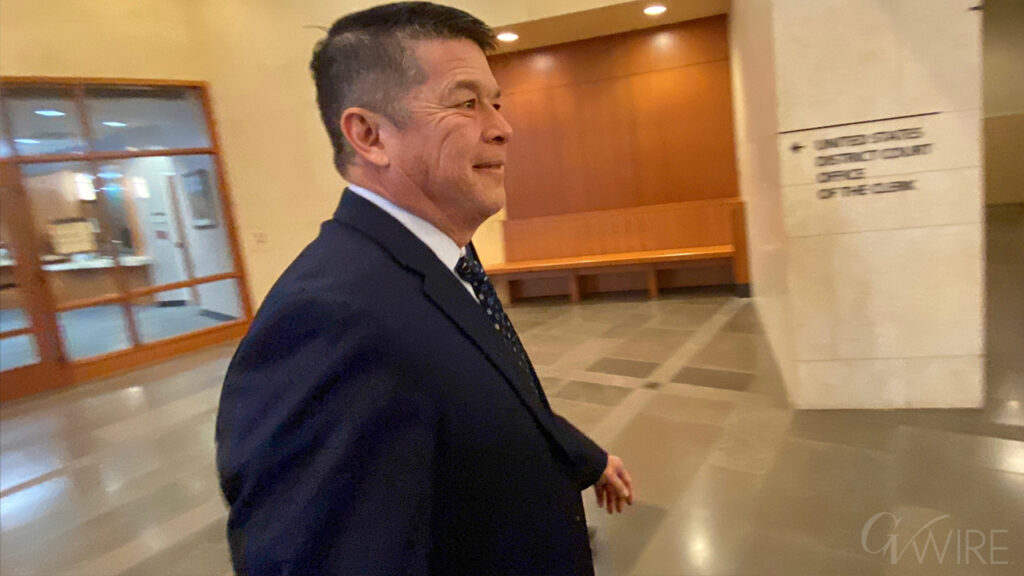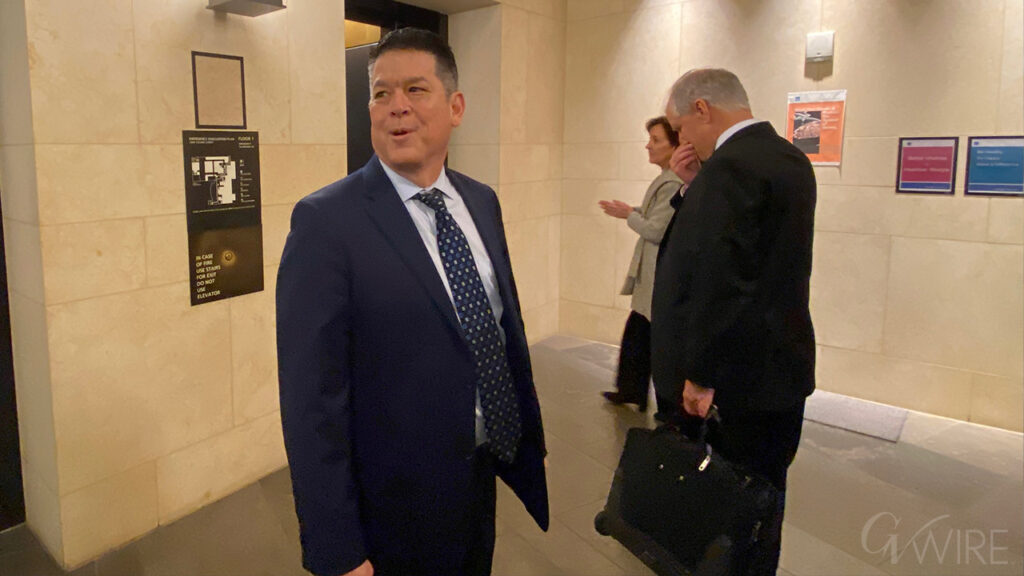“Make America Great Again” merchandise is displayed in Washington, June 4, 2025. (Aleksey Kondratyev/The New York Times/File)

- The U.S. once we led the world in everything, especially science. Under President Trump, we're surrendering to China.
- After Russia launched Sputnik in 1957, America confidently responded with investments in research and technology.
- The U.S. should respond to China's advances by renewing its faith in the power of the human mind.
Share
|
Getting your Trinity Audio player ready...
|
Confidence. Some people have more of it and some people have less. Confident people have what psychologists call a strong internal locus of control. They believe they have the resources to control their own destiny. They have a bias toward action. They venture into the future.

David Books
The New York Times
Opinion
When it comes to confidence, some nations have it and some don’t. Some nations once had it but then lost it. Last week on his blog, “Marginal Revolution,” Alex Tabarrok, a George Mason University economist, asked us to compare America’s behavior during Cold War I (against the Soviet Union) with America’s behavior during Cold War II (against China). I look at that difference and I see a stark contrast — between a nation back in the 1950s that possessed an assumed self-confidence versus a nation today that is even more powerful but has had its easy self-confidence stripped away.
In the 1950s, American intelligence suggested that the Soviet Union was leapfrogging U.S. capabilities across a range of military technologies. Then on Oct. 4, 1957, the Soviet Union launched the first satellite, Sputnik, into space.
America Responded to Sputnik With Confidence, Investment
Americans were shocked but responded with confidence. Within a year the United States had created NASA and ARPA (later DARPA), the research agency that among other things helped create the internet. In 1958, President Dwight Eisenhower signed the National Defense Education Act, one of the most important education reforms of the 20th century, which improved training, especially in math, science and foreign languages. The National Science Foundation budget tripled. The Department of Defense vastly increased spending on research and development. Within a few years total research and development spending across many agencies zoomed up to nearly 12% of the entire federal budget. (It’s about 3% today.)
America’s leaders understood that a superpower rivalry is as much an intellectual contest as a military and economic one. It’s who can out-innovate whom. So they fought the Soviet threat with education, with the goal of maximizing talent on our side.
“One reason the U.S. economy had such a good Cold War was that the American university had an ever better one,” historian Hal Brands writes in his book “The Twilight Struggle.” Federal support for academic research rose to $1.45 billion in 1970 from $254 million in 1958. Earlier in that century, American universities lagged behind their “best” European peers, Brands observes; by the end of the Cold War, they dominated the globe.
Today we are in a second Cold War. For the first couple of decades it wasn’t clear whether China was a rival or a friend, but now it’s pretty clear that China is more a rival than a friend. As scholar Robert D. Atkinson argued in The New York Times this year, for the Chinese regime, the desire to make money is secondary. “Its primary goal is to damage America’s economy and pave the way for China to become the world’s pre-eminent power,” he wrote.
China Moves to Seize the Future
China is a country that, according to a 2024 House committee inquiry, was directly subsidizing the manufacture and export of fentanyl materials, even though drug overdose is the leading cause of death among Americans 18 to 44.
Since the beginning of the 21st century, China has moved — confidently — to seize the future, especially in the realm of innovation and ideas. China’s total research and development funding has grown 16-fold since 2000. Now China is surging ahead of the United States in a range of academic spheres. In 2003, Chinese scholars produced very few broadly cited research papers. Now they produce more “high impact” research papers than Americans do, and according to The Economist, they absolutely dominate research in the following fields: materials science, chemistry, engineering, computer science, the environment and ecology, agricultural science, physics and math.
These achievements of course lead directly to China’s advantages across a range of high-tech industries. It’s not just high-tech manufacturing of things like electric vehicles, drones and solar panels. It’s high-tech everything. In the years between 2003 and 2007, according to a study by the Australian Strategic Policy Institute, the United States led the way in 60 of 64 frontier technologies — stretching across sectors such as defense, space, energy, the environment, computing and biotech. By the period between 2019 and 2023, the Chinese led among 57 of those 64 key technologies, while the United States led in only seven.
Then along came AI. Americans overall are fearful about it. Last year, the polling organization Ipsos asked people from 32 countries if they were excited for the AI future or nervous about it. Americans are among the most nervous people in the world. The countries most excited by the prospect of that future? China, South Korea, Indonesia and Thailand. The fact is that nobody knows what the AI future holds; people’s projections about it mostly reflect their emotional states. Americans used to be the youthful optimists of the globe. Not right now.
America Retreats, Stops Believing in Brainpower
So how is America responding to the greatest challenge of Cold War II? With huge increases in research? By infusing money into schools and universities that train young minds and produce new ideas? We’re doing the exact opposite. Today’s leaders don’t seem to understand what the Chinese clearly understand — that the future will be dominated by the country that makes the most of its talent. On his blog, Tabarrok gets it about right: “The DeepSeek Moment has been met not with resolve and competition but with anxiety and retreat.”
Populists are anti-intellectual. President Donald Trump isn’t pumping research money into the universities; he’s draining it out. The administration is not tripling the National Science Foundation’s budget; it’s trying to gut it. The administration is trying to cut all federal basic research funding by a third, according to the American Association for the Advancement of Science. A survey by the journal Nature of 1,600 scientists in the United States found that three-quarters of them have considered leaving the country.
The response to the Sputnik threat was to go outward and compete. Trump’s response to the Chinese threat generally is to build walls, to erect trade barriers and to turn inward. A normal country would be strengthening friendships with all nations not named China, but the United States is burning bridges in all directions. A normal country would be trying to restore America’s shipbuilding industry by making it the best in the world. We’re trying to save it through protectionism. The thinking seems to be: We can protect our mediocre industries by walling ourselves off from the world. That’s a recipe for national decline.
The problem is not just Trump. China has been displaying intellectual and innovative vitality for decades and the United States has scarcely mobilized. This country sometimes feels exhausted, gridlocked, as if it has lost its faith in itself and contact with its future.
We Can Become a Confident, Dominant Country Again
In the progressive era, America built new institutions like the Food and Drug Administration and the Federal Reserve. During the New Deal, Americans created an alphabet soup of new agencies. By 1949, Americans had created NATO and the precursor to the World Bank. Where are the new institutions fit for today? Government itself is not great at innovation, but for a century, public sector money has been necessary to fuel the fires of creativity — in the United States, in Israel and in China. On that front, America is in retreat.
Can confidence be restored? Of course. Franklin Roosevelt did it and Ronald Reagan did it. Is China’s dominance inevitable? Of course not. Centrally controlled economies are prone to monumental blunders.
But the primary contest is psychological — almost spiritual. Do Americans have faith in the power of the human mind? Are they willing to invest to enlarge the national talent pool? Right now, no. Americans, on the left and the right, have become highly attentive to threat, risk-averse and self-doubting about the national project. What do you do with a country with astounding advantages but that no longer believes in itself?
This article originally appeared in The New York Times.
By David Brooks/Aleksey Kondratyev
c.2025 The New York Times Company



















